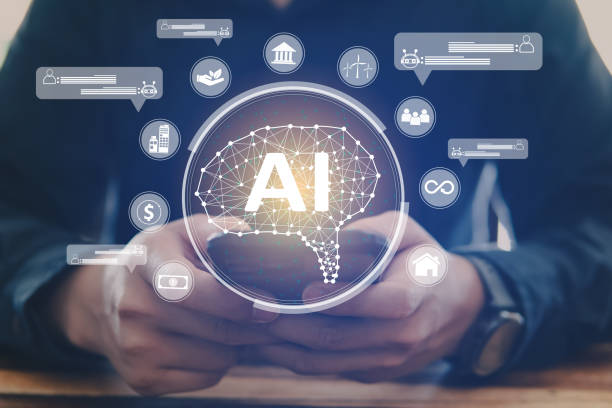What is an Artificial Intelligence Assistant and How Does it Work?
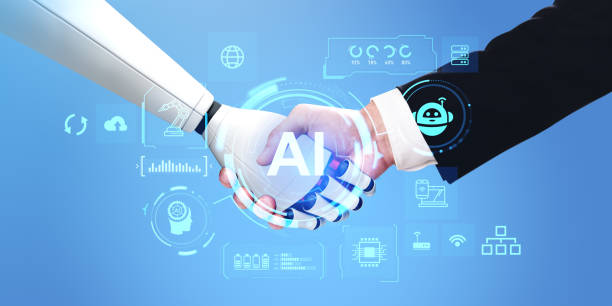
#Artificial Intelligence Assistant is a software or hardware that, using artificial intelligence algorithms, is capable of performing various tasks automatically or with minimal human intervention.
These tasks can include answering questions, performing calculations, generating content, scheduling tasks, controlling smart devices, and many other things.
Artificial intelligence assistants have the ability to improve their performance over time by processing data and learning patterns.
Useful link: Artificial Intelligence
The operation of an artificial intelligence assistant usually involves three main stages: receiving input, processing input, and producing output.
In the input receiving stage, the artificial intelligence assistant receives information through voice, text, or other sensors.
In the input processing stage, this information is analyzed using #Natural Language Processing (NLP) and machine learning algorithms.
Finally, in the output generation stage, the artificial intelligence assistant produces and presents an appropriate response or action.
For example, a voice artificial intelligence assistant like Siri or Alexa first receives the user’s voice, then converts it to text and understands its meaning using NLP.
Finally, based on this understanding, it generates an appropriate response and provides it to the user.
This process allows the artificial intelligence assistant to communicate with users in a natural and interactive way.
Artificial intelligence assistants are increasingly playing an important role in our daily lives and helping us to perform our tasks more effectively and efficiently.
By providing smart and automated solutions, these assistants save us time and effort and allow us to focus on more important activities.
Machine learning is one of the main pillars of these assistants.
Did you know that customers’ first impression of your company is your website? Multiply your business credibility with a powerful corporate website from Rasaweb!
✅ Exclusive and eye-catching design tailored to your brand
✅ Improving user experience and increasing customer attraction
⚡ Get free consultation!
Types of Artificial Intelligence Assistants and Their Applications
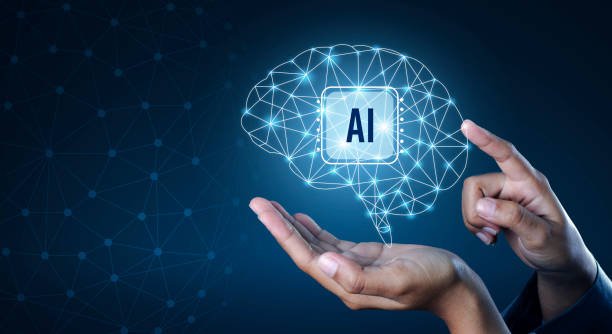
Artificial intelligence assistants can be divided into different categories based on the type of function, the platform used, and their applications.
Based on the type of function, artificial intelligence assistants can be divided into two general categories: voice artificial intelligence assistants and text artificial intelligence assistants.
Voice artificial intelligence assistants, such as Siri, Alexa, and Google Assistant, communicate with the user using voice and respond to voice commands.
Text artificial intelligence assistants, such as chatbots, communicate with the user using text and respond to text questions and requests.
Based on the platform used, artificial intelligence assistants can be divided into categories such as mobile artificial intelligence assistants, desktop artificial intelligence assistants, and web artificial intelligence assistants.
Mobile artificial intelligence assistants run on mobile phones and tablets and allow the user to access artificial intelligence services through their mobile devices.
Desktop artificial intelligence assistants run on personal computers and allow the user to access artificial intelligence services through their computer.
Web artificial intelligence assistants run on web browsers and allow the user to access artificial intelligence services through websites and web applications.
The applications of artificial intelligence assistants are very wide and diverse and include areas such as answering questions, generating content, scheduling tasks, controlling smart devices, providing purchase suggestions, language translation, and many other things.
For example, an artificial intelligence assistant can help the user to quickly find the information they need, write an email or report, schedule a meeting, turn the lights on or off in the house, order a product online, translate a text from one language to another, and perform many other tasks.
The use of artificial intelligence applications is increasing day by day, and it is expected that in the near future, artificial intelligence assistants will play a much more important role in our daily lives.
Important Criteria for Choosing a Suitable Artificial Intelligence Assistant
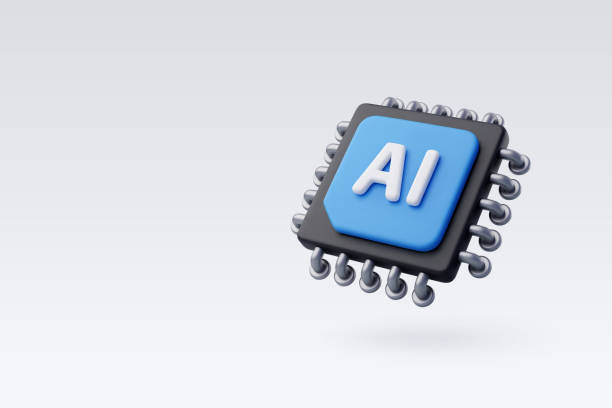
Choosing the right artificial intelligence assistant depends on your needs and expectations.
However, there are some important criteria that should be considered when choosing an artificial intelligence assistant.
These criteria include:
Accuracy and Reliability: A good artificial intelligence assistant should be able to answer your questions and requests accurately and reliably.
This means that the artificial intelligence assistant must use advanced algorithms and sufficient data for learning and processing information.
Compatibility with the platforms used: A good artificial intelligence assistant should be compatible with the platforms you use.
For example, if you use your mobile phone more, you should choose a mobile artificial intelligence assistant that is compatible with your mobile phone’s operating system.
Ease of use: A good artificial intelligence assistant should be easy to use.
This means that the user interface of the artificial intelligence assistant should be simple and understandable, and the commands should be easy to execute.
Privacy and Security: A good artificial intelligence assistant should protect your privacy and security.
This means that the artificial intelligence assistant should securely protect your data and not use it for inappropriate purposes.
Price: The price of an artificial intelligence assistant can also be an important factor in choosing it.
Some artificial intelligence assistants are free, while others require a subscription fee.
You should choose a suitable artificial intelligence assistant according to your budget.
Comparison table of some popular artificial intelligence assistants:
| Name of Artificial Intelligence Assistant | Platform | Price | Capabilities |
|---|---|---|---|
| Siri | iOS | Free | Answering questions, controlling smart devices, scheduling tasks |
| Alexa | Amazon Echo | Variable | Answering questions, playing music, controlling smart devices |
| Google Assistant | Android | Free | Answering questions, controlling smart devices, language translation |
| Microsoft Cortana | Windows | Free | Answering questions, scheduling tasks, email management |
How to Optimize the Use of an Artificial Intelligence Assistant
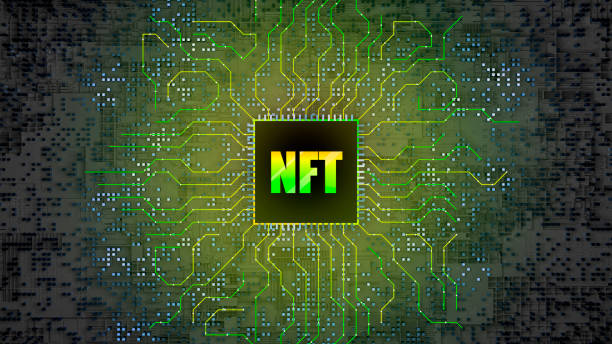
To make optimal use of an artificial intelligence assistant, you need to be familiar with its features and capabilities and know how you can best use them.
Here are a few tips for optimizing the use of an artificial intelligence assistant:
Use clear and concise commands: When speaking with an artificial intelligence assistant, use clear and concise commands so that the assistant can easily understand what you mean.
Avoid using complex and ambiguous sentences.
Use personalization features: Many artificial intelligence assistants allow you to customize them based on your needs and preferences.
Use these features to improve your experience with the artificial intelligence assistant.
Use the artificial intelligence assistant to perform repetitive tasks: Artificial intelligence assistants are very good at performing repetitive tasks.
Use them to perform tasks such as setting alarms, sending emails, and playing music to save time and effort.
Interact with the artificial intelligence assistant: The more you interact with the artificial intelligence assistant, the better the assistant can understand your needs and provide more accurate answers.
Don’t be afraid to ask questions and provide feedback to the artificial intelligence assistant.
Pay attention to your privacy: Keep in mind that artificial intelligence assistants collect your information.
Pay attention to your privacy and configure the artificial intelligence assistant’s privacy settings correctly.
By following these tips, you can use your artificial intelligence assistant more effectively and efficiently and benefit from its advantages.
Using the benefits of artificial intelligence can make your life easier.
Doesn’t your current corporate website reflect the credibility and power of your brand as it should? Rasaweb solves this challenge for you with professional corporate website design.
✅ Increase the credibility and trust of visitors
✅ Targeted attraction of more customers
⚡ Click to receive free consultation!
The Future of Artificial Intelligence Assistants

The future of artificial intelligence assistants is very bright and promising.
With continuous advances in the field of artificial intelligence and machine learning, artificial intelligence assistants will be able to perform more complex tasks in the future and help us more in our daily lives.
It is predicted that in the future, artificial intelligence assistants will be able to:
Fully adapt to our needs: Artificial intelligence assistants will be able to fully adapt to our needs by learning from our behavior and preferences and providing much more accurate answers.
Make decisions independently: In the future, artificial intelligence assistants will be able to make decisions independently in some cases and perform their tasks without the need for human intervention.
Connect with our emotions: In the future, artificial intelligence assistants will be able to understand and respond to our emotions.
This will allow them to establish a deeper connection with us and help us manage our emotions.
Be used in new areas: Artificial intelligence assistants will be used in new areas such as education, health and treatment, and transportation in the future and will help improve the quality of our lives.
In general, artificial intelligence assistants will play a much more important role in our lives in the future and will help us make our lives easier, more efficient, and more enjoyable.
The transformations of the future of artificial intelligence will be very significant.
Artificial Intelligence Assistants and Privacy
![]()
One of the main concerns regarding the use of artificial intelligence assistants is privacy issues.
Artificial intelligence assistants need to collect and process users’ personal information in order to perform their tasks.
This information can include voice, text, location, browser history, and many other things.
This information can be used by the artificial intelligence assistant manufacturers for various purposes such as improving the assistant’s performance, providing targeted advertising, and selling to third parties.
To protect your privacy when using an artificial intelligence assistant, you should pay attention to the following points:
Configure the privacy settings of the artificial intelligence assistant correctly: Many artificial intelligence assistants allow you to configure your privacy settings and specify what information you want to share with them.
Use anonymous artificial intelligence assistants: Some artificial intelligence assistants allow you to use them anonymously.
This means that the artificial intelligence assistant does not collect your personal information.
Use artificial intelligence assistants with strong privacy policies: Before using an artificial intelligence assistant, carefully read its privacy policies and make sure that it protects your data securely.
Pay attention to the information you share with the artificial intelligence assistant: Avoid sharing sensitive and personal information with your artificial intelligence assistant.
By following these tips, you can protect your privacy when using an artificial intelligence assistant and benefit from its advantages.
It should be noted that the laws related to privacy in artificial intelligence are under development.
Security of Artificial Intelligence Assistants and Ways to Deal with Threats
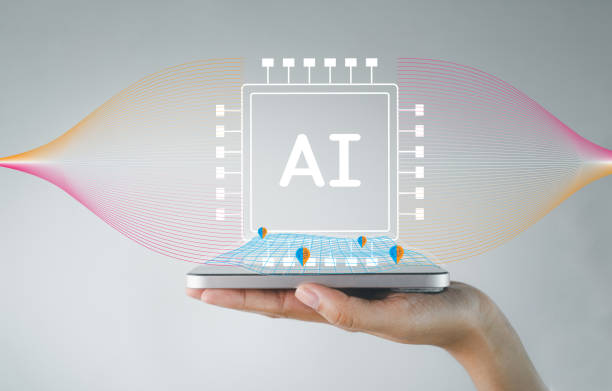
In addition to privacy, security is another major concern regarding the use of artificial intelligence assistants.
Artificial intelligence assistants can be exposed to various security threats, including:
Hacking: Artificial intelligence assistants can be hacked by hackers and used for malicious purposes.
Phishing: Hackers can deceive users through artificial intelligence assistants and steal their personal information.
Denial-of-service attacks: Hackers can disable artificial intelligence assistants by sending too many requests to them.
Data pollution: Hackers can pollute the data used by artificial intelligence assistants and cause them to make incorrect decisions.
To deal with these security threats, you should take the following measures:
Use strong passwords: Use strong and unique passwords for your user accounts.
Keep your artificial intelligence assistant software up to date: Regularly update your artificial intelligence assistant software to benefit from the latest security patches.
Use antivirus and firewall: Use antivirus and firewall to protect your device against malware and cyber attacks.
Do not respond to suspicious emails and messages: Do not respond to suspicious emails and messages that ask you for personal information.
Pay attention to suspicious activities in your artificial intelligence assistant: If you notice any suspicious activities in your artificial intelligence assistant, report it immediately.
By following these tips, you can increase the security of your artificial intelligence assistant and protect yourself against cyber threats.
Providing security in artificial intelligence is a constant challenge.
| Type of Threat | Description | Solution |
|---|---|---|
| Hacking | Unauthorized access to the artificial intelligence assistant | Use strong passwords, update software |
| Phishing | Deceiving users to steal information | Do not respond to suspicious emails and messages |
| Denial-of-service attacks | Disabling the artificial intelligence assistant | Use firewall and intrusion detection systems |
| Data pollution | Entering incorrect data into the artificial intelligence assistant | Monitor input data and use anomaly detection algorithms |
Artificial Intelligence Assistants and Businesses

Artificial intelligence assistants can play an important role in improving the performance and efficiency of businesses.
These assistants can be used in various fields such as customer service, marketing, sales, and human resource management.
In the field of customer service, artificial intelligence assistants can answer customers’ questions, solve their problems, and provide them with the information they need.
This can lead to increased customer satisfaction and reduced customer service costs.
In the field of marketing, artificial intelligence assistants can help analyze customer data, identify their behavioral patterns, and provide targeted advertising.
This can lead to increased advertising effectiveness and increased sales.
In the field of sales, artificial intelligence assistants can help identify potential customers, provide sales offers, and track sales.
This can lead to increased sales and improved sales team performance.
In the field of human resource management, artificial intelligence assistants can help hire new employees, train employees, and evaluate employee performance.
This can lead to reduced human resource management costs and improved human resource team performance.
In general, artificial intelligence assistants can help businesses become more efficient, profitable, and competitive.
The use of #Artificial Intelligence Assistant in businesses is increasing, and it is expected that in the near future, these assistants will play a much more important role in the business world.
#Artificial_Intelligence is a powerful tool for businesses.
Are you bothered by losing customers because of the old look or slow speed of your online store? The expert Rasaweb team solves these problems with professional online store website design!
✅ Increase customer trust and brand credibility
✅ Amazing speed and excellent user experience
Get a free consultation with Rasaweb right now ⚡
Challenges and Limitations of Artificial Intelligence Assistants
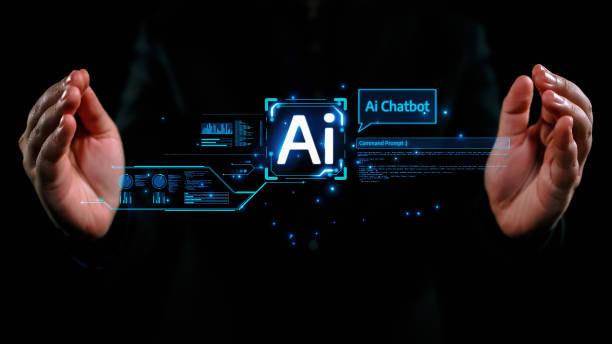
Despite their many advantages, artificial intelligence assistants still face challenges and limitations.
Some of these challenges and limitations include:
Lack of full understanding of natural language: Artificial intelligence assistants still have difficulty fully understanding human natural language.
This can lead to misunderstandings and incorrect responses.
Need for a lot of data: Artificial intelligence assistants need a lot of data to learn and improve their performance.
This can make data collection and processing difficult and costly.
Algorithmic biases: The algorithms used in artificial intelligence assistants can be biased.
These biases can lead to unfair and discriminatory decisions.
Ethical issues: The use of artificial intelligence assistants can create various ethical issues.
For example, the use of artificial intelligence assistants to replace human employees can lead to unemployment.
Technical limitations: Artificial intelligence assistants still face technical limitations.
For example, artificial intelligence assistants cannot fully understand and respond to human emotions.
Artificial intelligence assistants need to try harder.
To overcome these challenges and limitations, more research and development needs to be done in the field of artificial intelligence and machine learning.
Also, ethical and social issues related to the use of artificial intelligence assistants should be addressed and appropriate solutions should be provided.
By addressing these challenges and limitations, artificial intelligence assistants can play a more effective role in our lives.
#Challenges_of_Artificial_Intelligence should be carefully examined.
Key Tips for Choosing and Using an Artificial Intelligence Assistant

In this article, we examined various aspects of artificial intelligence assistants.
Here, we briefly review the key tips for choosing and using an artificial intelligence assistant:
Identify your needs: Before choosing an artificial intelligence assistant, identify your needs accurately.
What tasks do you want to perform using the artificial intelligence assistant? What features are important to you? Compare different artificial intelligence assistants: Before choosing an artificial intelligence assistant, compare different assistants with each other.
Pay attention to their accuracy, reliability, compatibility, ease of use, privacy, security, and price.
Configure privacy and security settings: After choosing an artificial intelligence assistant, configure its privacy and security settings correctly to protect your personal information.
Regularly update your artificial intelligence assistant software: Regularly update your artificial intelligence assistant software to benefit from the latest security patches and ensure its optimal performance.
#Artificial Intelligence Assistant can make your life easier.
By following these tips, you can choose the right artificial intelligence assistant and benefit from its advantages.
We hope that this article has been helpful to you.
#Choosing_Artificial_Intelligence_Assistant requires accuracy.
With an artificial intelligence assistant, you can do your work quickly.
Frequently Asked Questions
| Row | Question | Answer |
|---|---|---|
| 1 | What is an artificial intelligence assistant? | It’s a software application that performs tasks or services for an individual based on verbal or textual commands. |
| 2 | Name a few examples of artificial intelligence assistants? | Siri, Google Assistant, Alexa and Cortana. |
| 3 | How do artificial intelligence assistants work? | They use natural language processing (NLP), machine learning, and artificial intelligence to understand user input and provide a response or complete a task. |
| 4 | What can an artificial intelligence assistant do? | Answer questions, set reminders, play music, send messages, manage calendars and control smart devices. |
| 5 | What are the benefits of using an artificial intelligence assistant? | Increased productivity, fast access to information, assistance to people with disabilities, and streamlining everyday tasks. |
| 6 | Are the answers of artificial intelligence assistants always accurate? | No, they may sometimes make mistakes or provide outdated information, especially on complex or sensitive topics. |
| 7 | What are the privacy concerns about artificial intelligence assistants? | Recording and storing voice/text data, possibility of unauthorized access and use of data for advertising purposes. |
| 8 | What will the future of artificial intelligence assistants be like? | Becoming smarter, more integrated with devices and platforms, a deeper understanding of emotions and the ability to perform more complex tasks. |
| 9 | Do artificial intelligence assistants learn from users? | Yes, through machine learning and data collection from previous interactions to improve performance and personalize responses. |
| 10 | What is the difference between an artificial intelligence assistant and a chatbot? | Artificial intelligence assistants have the ability to perform a wider range of tasks beyond conversation and are often integrated with the operating system or hardware, while chatbots are mostly designed for conversation or answering specific questions. |
And other services of Rasa Web Advertising Agency in the field of advertising
Intelligent UI/UX: an effective tool to improve SEO ranking by using real data.
Intelligent Marketplace: A fast and efficient solution for managing campaigns with a focus on marketing automation.
Intelligent Marketing Automation: Professional optimization for customer acquisition using attractive user interface design.
Intelligent Marketing Automation: A creative platform to improve sales growth with marketing automation.
Intelligent Marketplace: an effective tool to attract customers with the help of marketing automation.
And more than hundreds of other services in the field of internet advertising, advertising consulting and organizational solutions
Internet Advertising | Advertising Strategy | Advertisement Report
Resources
Zoomit report on access to the Bard API
,Virgool article on the applications of artificial intelligence
,Aparat video about what artificial intelligence is and how it works
,Introduction to the applications of artificial intelligence in everyday life – Arinic
? A brighter future awaits your business with Rasa Web’s professional services. From SEO website design to digital marketing strategies, we are with you every step of the way to have a strong presence in the online world.
📍 Tehran, Mirdamad Street, next to the Central Bank, Kazerun South Alley, Ramin Alley No. 6
“`

